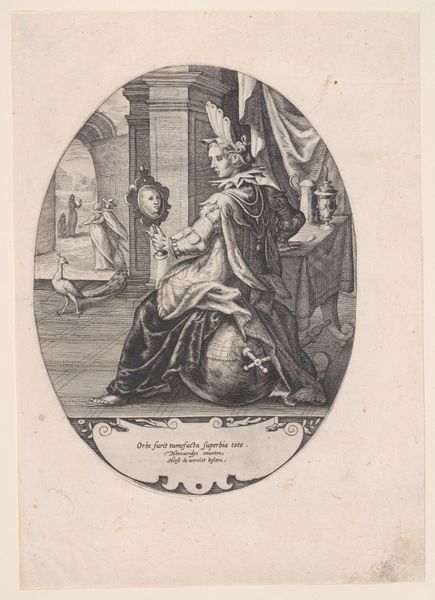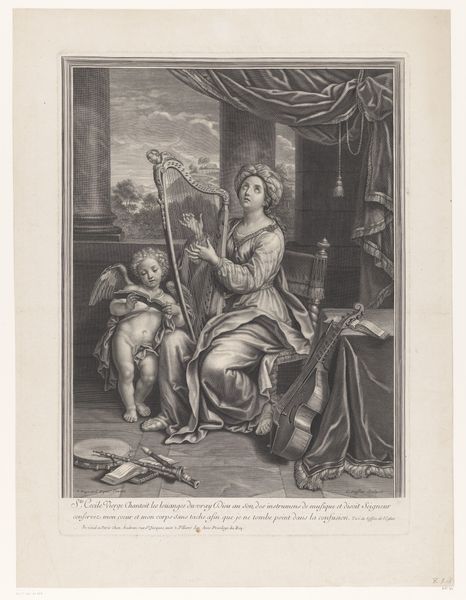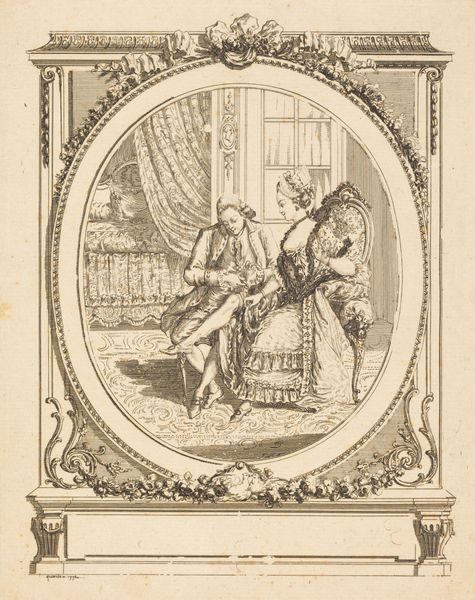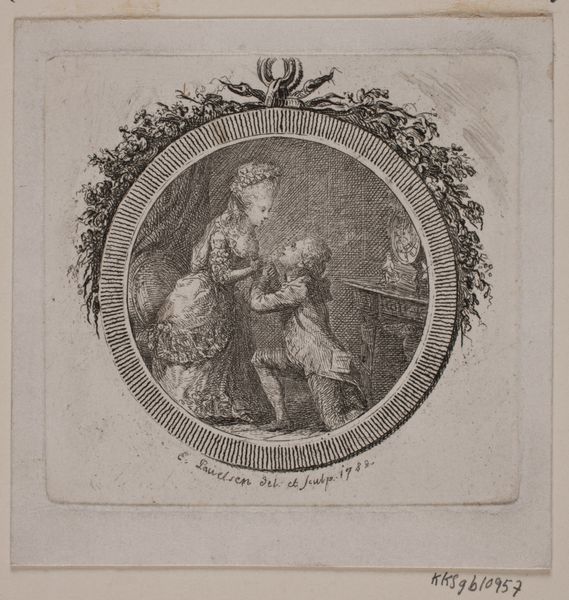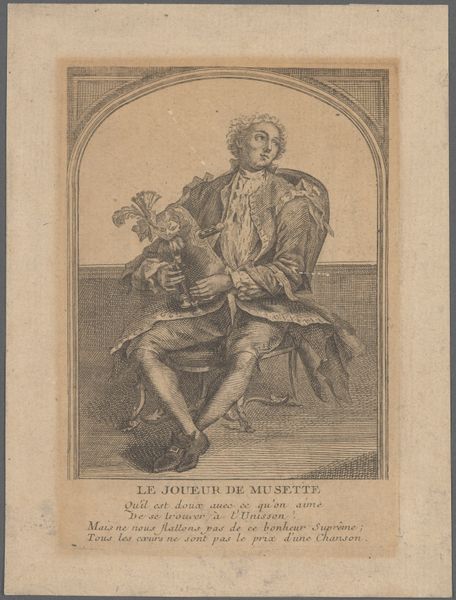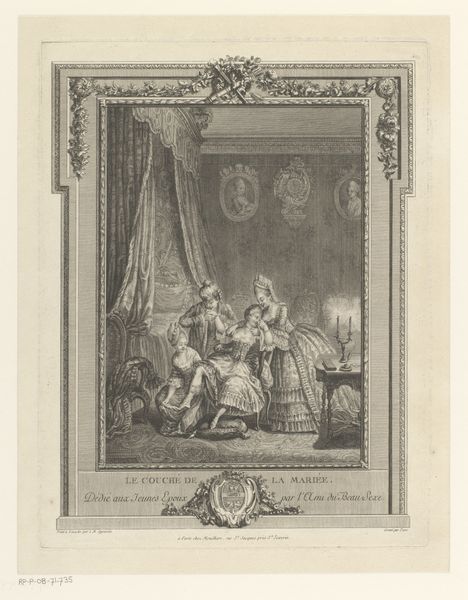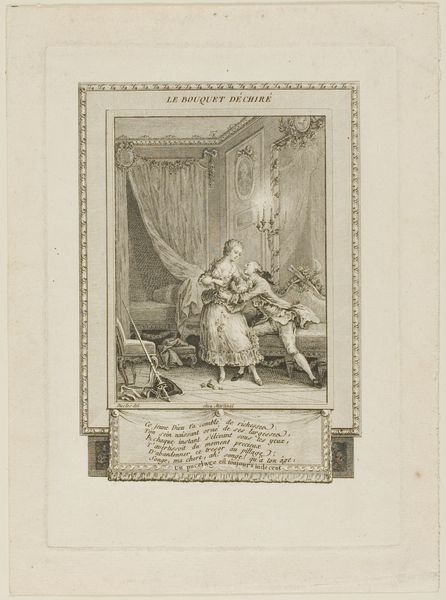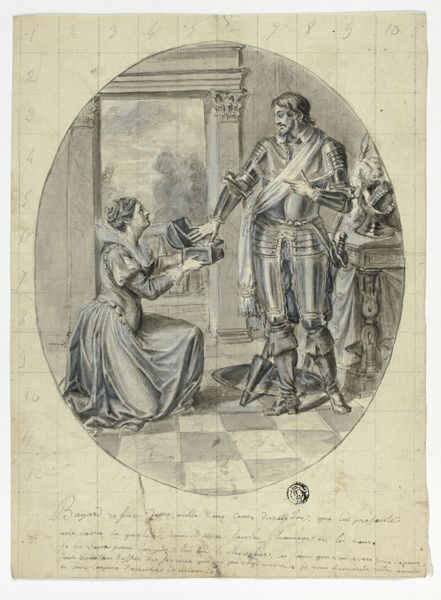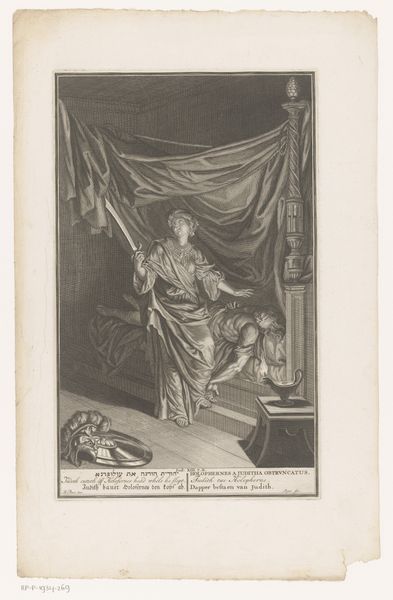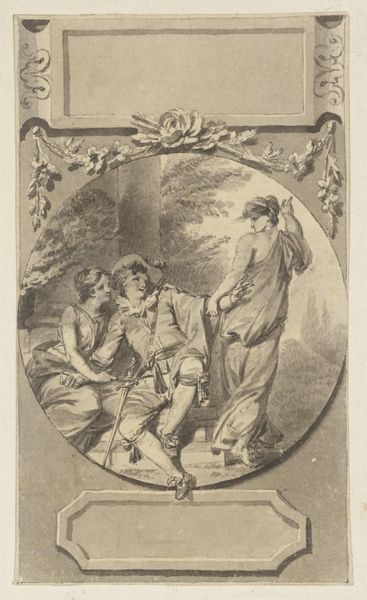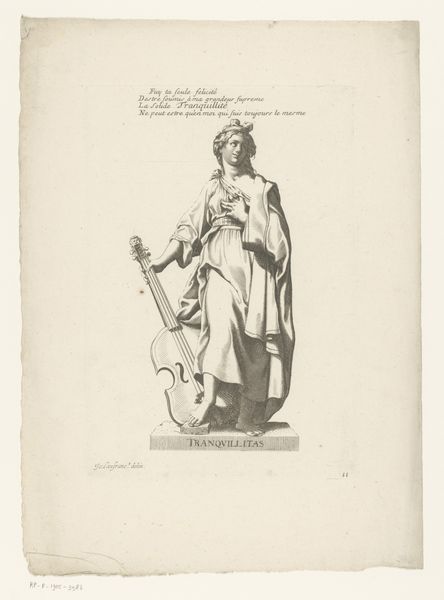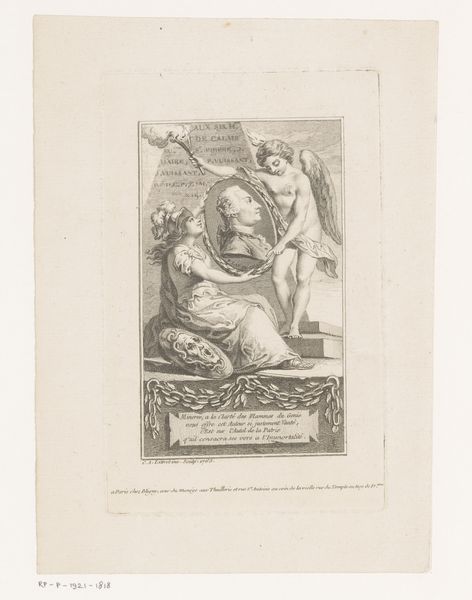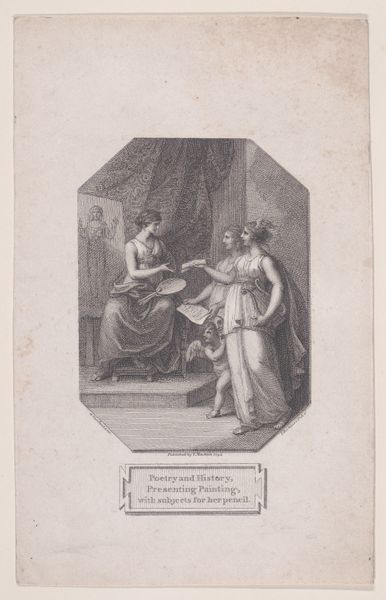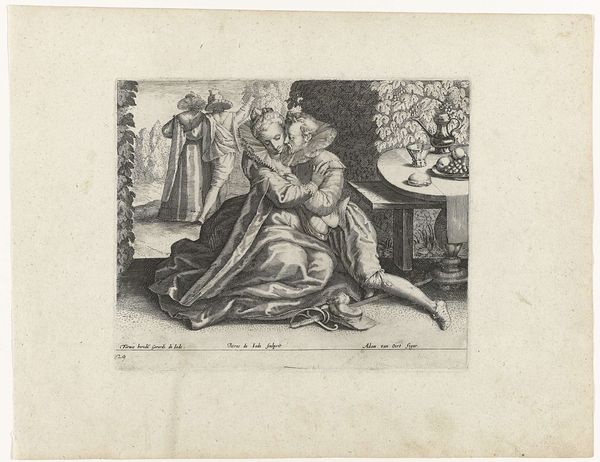
Allegory on Justice and the Pitfalls of Corruption 1590 - 1630
0:00
0:00
drawing, print, engraving
#
drawing
#
allegory
# print
#
mannerism
#
figuration
#
form
#
line
#
history-painting
#
academic-art
#
engraving
Dimensions: Height: 8 3/4 in. (22.2 cm) Width: 6 9/16 in. (16.6 cm)
Copyright: Public Domain
Editor: So this is "Allegory on Justice and the Pitfalls of Corruption," dating roughly from 1590 to 1630, a drawing by Lambert Cornelisz currently at the Met. It seems like an incredibly detailed engraving, and my immediate impression is that it's very dynamic. What's your take on the visual language being used here? Curator: The piece’s power resides primarily in the intricate dance of lines that Cornelisz orchestrates. Consider how the tight, almost frenetic, hatching defines the figure of Justice and her tormentor, playing with light and shadow to emphasize the tension. Note the Mannerist elongation of figures, distorting proportions, creating a sense of unease and heightened drama. Does this calculated manipulation of form not amplify the allegory's warning against moral decay? Editor: Yes, absolutely. The elongation and the cramped composition definitely contribute to a sense of unease, making the scene feel very precarious. But what about the other elements – the architectural backdrop, or the elephants in the distance? How do they function within this formal analysis? Curator: These are interesting, if subsidiary, elements. Consider the architectural framework as a stage—the setting offers depth, but it is essentially a frame, containing the central drama. It’s a calculated decision; Cornelisz wants to focus your eye, drawing you into the complex interplay between the figures. What does it suggest to you that he used this framing? Editor: I think framing our view is to make us look at every aspect with scrutiny and focus; in doing so the forms make an immediate statement about decay and unfair dealing with their inherent characteristics. Thank you, I really appreciate how analyzing the formal elements unveils these meanings! Curator: Indeed. It is through a meticulous engagement with line, form, and composition that the work’s enduring message comes into sharp relief.
Comments
No comments
Be the first to comment and join the conversation on the ultimate creative platform.
